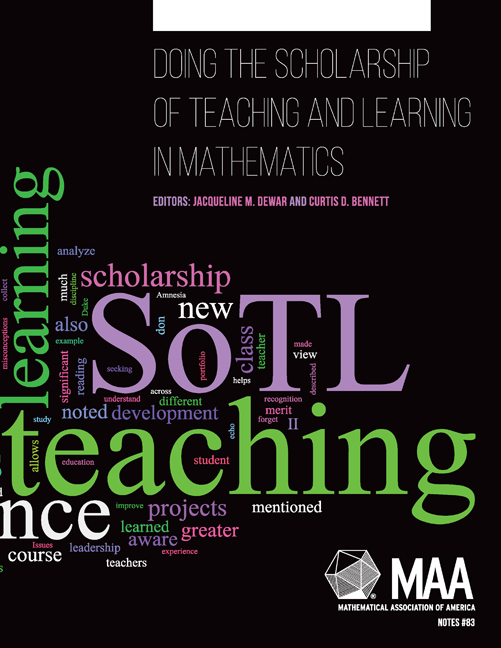16 - The Mathematics of Symmetry and Attitudes towards Mathematics
from Theme 4: - Exploring Student Understanding of the Nature of Mathematics
Summary
Editors' Commentary
In this chapter Blake Mellor describes a study of student learning in a mathematics for liberal arts course offered as an alternative to the typical quantitative skills course. His approach to getting baseline data for his study was to teach the traditional quantitative skills course first. As a result of pursuing a SoTL investigation over several semesters, he encountered a number of issues with the use of surveys. Awareness of the lessons learned by Mellor will be useful to those beginning in SoTL. The author presents a different perspective on the personal and professional impact of SoTL. For him, SoTL will not be a path to publication, but will serve as a form of professional development that enables him to revise and improve his courses.
Introduction
Most college students have a view of mathematics shaped by a high-school curriculum designed to prepare students for calculus. As a result, they view mathematics as primarily a formal exercise in manipulating numbers and algebraic formulas, with applications restricted to the sciences and perhaps finance. Mathematicians, of course, view their subject quite differently. We see mathematics as a creative endeavor, and mathematical thinking as a skill with a wide range of applications. My SoTL investigation emerged from a desire to teach a course for students in the liberal arts that would broaden their view of mathematics and show how it could be applied to the arts and humanities. This long-term study has progressed slowly over the last ten years. In this chapter I describe the genesis of the project, how it has evolved over the past decade, mentioning some of the results, and some of the problems and difficulties I encountered.
The Genesis and Evolution of the Project
In the Beginning
This project began when I was first assigned to teach a mathematics course for liberal arts students. I had the freedom to choose my text, topics, and approach.
Information
- Type
- Chapter
- Information
- Doing the Scholarship of Teaching and Learning in Mathematics , pp. 157 - 170Publisher: Mathematical Association of AmericaPrint publication year: 2014
